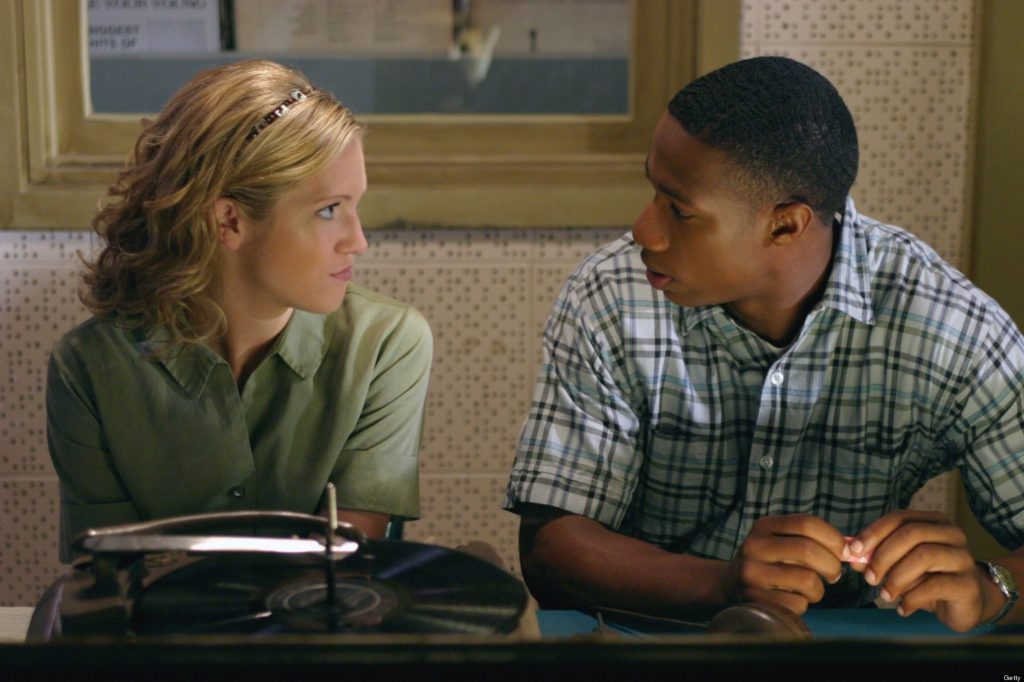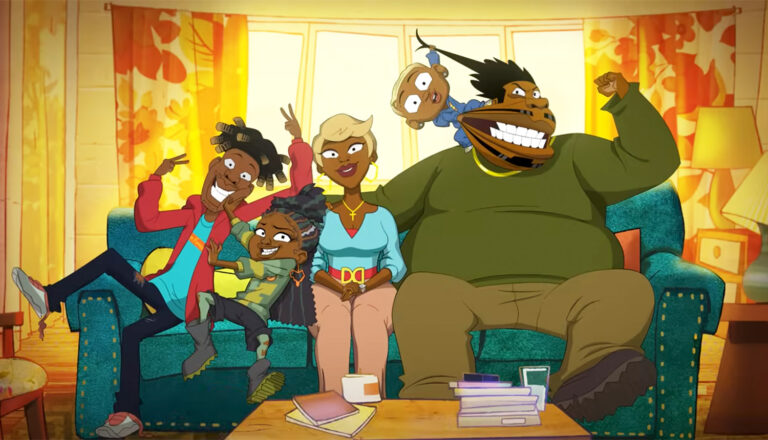
The fall of 1963 reluctantly yields to the deep winter of 1964. President Kennedy is dead. The economy falters. Racial tensions mount. And in Philadelphia, teenager Meg Pryor is falling in love with life, music, dancing … and a boy. Starring rising teen sensation Brittany Snow, NBC’s American Dreams tenderly probes one of America’s most pivotal decades, introducing 21st century viewers to an archetypal 20th century family.
Providing a tuneful backdrop to this pensive period piece is one of the era’s most remembered television shows, American Bandstand. Authentic black-and-white footage of Dick Clark’s pre-MTV music television is spliced into each episode. An ecstatic Meg and her best friend, Roxanne, become regular dancers on the live show, oblivious to how symbolic it is of an emerging pop culture and its changing ideals.
Compared with MTV’s lustful grind-fests, images from American Bandstand are refreshing. A certain innocence radiates off the screen both on the set of Bandstand and at the Pryor home. So far, Meg has been all aflutter over her first date, her first steady boyfriend and her first kiss—not a first sexual experience or drug experiment. Good Catholics, her mother and father teach the family to pray, revere God and extend kindness to those around them. Indeed, kindness takes up more screen time on American Dreams than anywhere else on TV, with the possible exception of Touched by an Angel.
Series writers manage to pull it all off without resorting to schmaltz. The Pryor’s family dynamic rings far truer than, say, 7th Heaven’s with realistic bickering woven around genuine devotion. Story lines take advantage of 20/20 hindsight, fearlessly tackling serious cultural issues (most notably racism). Every episode reviewed included a host of life lessons and opportunities for family discussion about loyalty, respect, ethics, self-sacrifice, honesty, love and friendship.
American Dreams entered 2003 as one of the cleanest, most morally compelling series in prime time. (Where else on TV can you witness a parent chiding a child for saying something “stinks”?) This is certainly not That ’60s Show. But how would families have described it if it had premiered 40 years earlier? Unquestionably cutting edge. Unapologetic explorations of mature subject matter, occasional profanity by adults and subtle sexual innuendo would have frustrated fans of Bonanza and The Donna Reed Show. Today, it’s a model of restraint, which speaks volumes about American Dreams … and about us.
Episodes Reviewed: Sept. 29, Oct. 6, 20, Nov. 10, 17, Dec. 15, 2002;Jan. 5, 2003


An elf mage contemplates on connection and regret as she watches her human friends grow old and pass away.

Netflix takes a classic sitcom, Good Times, and turns it into a vulgar, violent, sexually-charged TV-MA show.